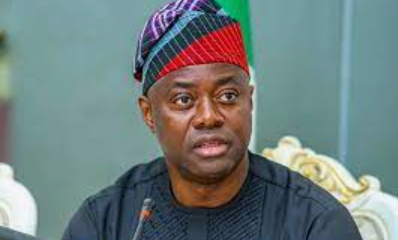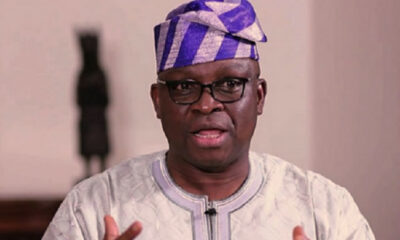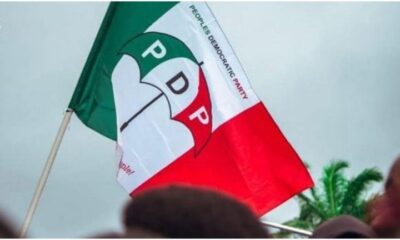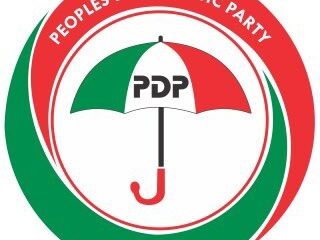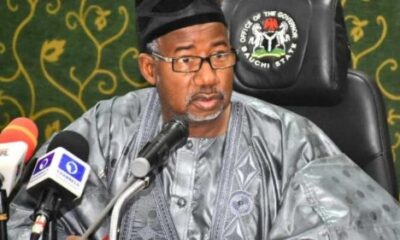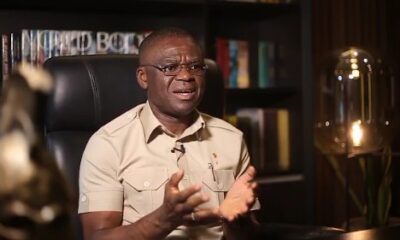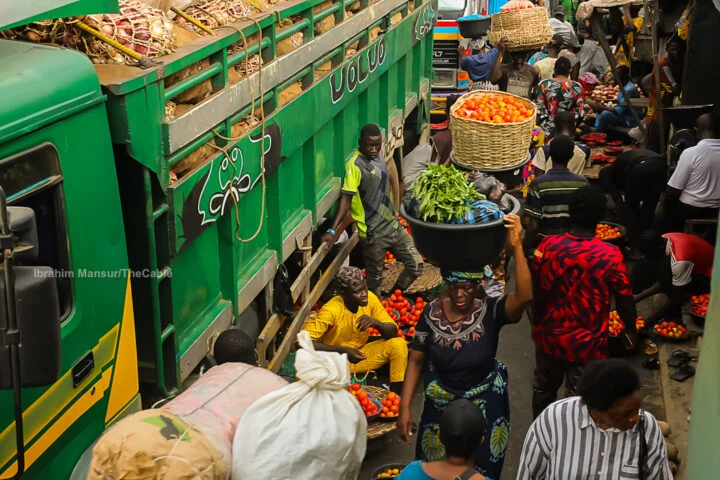Ahead of the 2023 general elections, the two leading political parties in Ebonyi State, the Peoples Democratic Party (PDP) and the ruling All Progressive Congress (APC), are enmeshed in internal squabbles.
The cracks in both parties started with the zoning of the governorship position to two senatorial zones instead of one, which caused a lot of tension and attracted widespread condemnation.
The cracks further widened following the acrimonious election of the state executive committees of both parties and resultant court cases which have seen the party chairmanship positions change hands.
The delegates’ election of both parties and the alleged hijack of the two parties by a few stakeholders have worsened the crisis in both parties.
Throw into the mix the expected emergence of a former Secretary to the State Government as the governorship candidate of the All Progressive Grand Alliance(APGA), then we have a potentially thrilling governorship contest in our hands in Ebonyi.
Power rotation brouhaha
Ebonyi like every other state has three senatorial zones
Ebonyi North has four local government areas – Izzi, Ebonyi, Abakaliki, and Ohaukwu – while Ebonyi Central also has four council areas which are Ịkwọ, Ezza South, Ezza North, and Íshielu.
Ebonyi South has five council areas namely Afikpo South, Afikpo North, Ivo, Ọhaọzara, and Onicha.
The entire Ebonyi Central and North zones, which came from the old Enugu State at the time of the creation of the state, were known as the Abakaliki bloc.
The entire south zone was carved out of the old Abịa State.
The two blocs, the Abakaliki bloc, and the southern bloc, banded together to fight for the creation of the state.
This led to a charter of equity in which they allegedly agreed to share power between the two blocks. The charter of equity was not signed but leaders of the two blocks reportedly agreed on it in principle, much like the gentleman agreement of the northern Nigeria and southern Nigeria political leaders in 1999 to rotate the presidency between the two zones.
However, the Abakaliki bloc was divided into two senatorial zones in 1999 with Governor Sam Egwu from the minority clan of Mgbo/Izhia in Ohaukwu becoming the first governor of the state.
When Mr. Egwu was about to leave, he struck an agreement with the elites to rotate power to the Central zone after which it will go to the South.
Thus Governor Martin Elechi, from Ikwo, a major clan in the Abakaliki bloc, succeeded Mr. Egwu. Hé served out his second term and handed it over to Governor David Umahi from the South who will conclude his second term in 2023.
Clannish politics
With Mr. Umahi’s tenure ending and the three zones having held the governorship position, it was expected that power revert to the Ebonyi North zone where it started in 1999.
However, stakeholders from Ebonyi Central, particularly the Ezza clan, started clamoring for the position to be thrown open to the entire Abakaliki bloc comprising the North and Central zone.
They piled so much pressure on the political class that both parties acquiesced to their demands by zoning the position to the entire Abakaliki bloc.
The situation has caused bad blood between the two major clans of Izzi from the north zone and Ezza from the central zone.
The Izzi, Ezza, and Ịkwọ (also in the Central zone) are the three major clans in the Abakaliki bloc.
While the Izzi is predominantly in three local government areas of Izzi, Abakaliki, and Ebonyi in the north, the Ezza is predominantly in Ezza North and South council areas in the Central zone.
They also make up a very sizable part of Ishielu in the Central zone and Effium town in Ohaukwu Local Government Area in the North zone.
Ịkwọ clan is predominantly found in the Ikwo Local Government Area, the most populous local government area in the state, as they were said to have refused to be divided into three or more local government areas during the creation of the state.
Following the zoning of the entire Abakaliki bloc, many aspirants from the two blocks declared interest in the governorship position, especially from Ezza and Izzi clans.
In PDP, 13 governorship aspirants were screened and cleared to take part in the primaries.
They include Ifeanyi-Chukwuma Odii; Obinna Ogba who is a senator, Austin Igwe-Edeze, and Adaeze Nwuzor, a professor and the lone female aspirant.
Others include a senator, Fidelis Nwankwo; Paulinus Igwenwagu; three members of the House of Representatives, Sylvester Ogbaga, Chukwuma Nwazunku, and Anayo Edwin; Austin Nwazunku; Chris Usulor; Emmanuel Eze, and Sunday Opoke.
Messrs Ọgba, Edwin, Usulor, and Igwenwagu are from Ebonyi Central while the rest except Mr. Odii are from the North.
Mr. Odii, a Lagos businessman, is the only candidate from the South. Hé said he joined the race because he does not believe in zoning as it tends to sometimes breed mediocrity and also because the Central zone does not want to respect the zoning arrangement already in place by allowing the North to have its turn.
In the APC, many candidates declared interest in the governorship position but only a few later purchased the forms, because of the acrimonious zoning of political offices by the party in the state.
The party had set up a zoning committee chaired by Governor Umahi’s brother, Austin Umahi. The committee began work by calling for memoranda from stakeholders on how all the positions should be zoned.
It was still in the process when Governor Umahi held separate meetings with the two major clans, Izzi and Ezza, during which he urged them to go and harmonize and produce two aspirants each for the position.
The Ezza clan stakeholders quickly agreed on Mr. Umahi’s Secretary to the State Government, Kenneth Ugbala, and a senator, Julius Ucha.
On their part, Izzi stakeholders at their first meeting could not come to a consensus, leading to the adjournment of the meeting. At the said meeting, the stakeholders also agreed that traditional rulers should be neutral in the whole process.
However, the traditional rulers quickly announced their endorsement of the Speaker of the State House of Assembly, Francis Nwifuru. This was quickly followed by political office holders and appointees of government who also endorsed Mr. Nwifuru.
This led to an uproar by other aspirants, other vested interests, and stakeholders from the clan who opposed the endorsement.
They accused the state government of masterminding and backing Mr. Nwifuru, even as they demanded a level playing field for all aspirants.
While this was going on, the Ezza clan met and narrowed their choice to only the senator, Mr. Ucha, who has represented Ebonyi Central twice in the Senate.
But Mr. Umahi quickly announced the House Speaker, Mr. Nwifuru, as not only the preferred choice of the Izzi clan but also his anointed successor. Unsurprisingly, his decision was also ratified by the zoning committee.
This did not go down well with other aspirants, especially Mr. Ucha and the Chairman of Revenue Mobilisation Allocation and Fiscal Commission, Elias Mbam.
Umahi’s defection and exclusion of old APC members raise dust
In November 2020, Governor Umahi, who won his election under the platform of the PDP, defected to the APC and was handed the structure of the party by the national leadership.
The governor dismantled the old leadership of the party and installed his trusted allies who had defected with him to the party.
This led to the appointment of Stanley Emegha and a few other trusted allies into the State Working Committee(SWC) of the party in an acting capacity.
Mr. Emegha would later be elected alongside other fellow defectors into the SWC in a substantive capacity last year in an acrimonious election.
The governor also installed his allies into the leadership of the party in the local government and ward levels to the chagrin of old APC members in the state.
Also, the governor was accused of not carrying the old APC along in appointments into his cabinet, as he appointed only the former chairman of the party, Eze Nwachukwu, into the cabinet.
The zoning/anointing of candidates for various state and National Assembly positions also seemed to have favored Mr. Umahi’s loyalists and excluded old APC members.
The old APC members protested the alleged injustices to the national leadership. Mr. Umahi, in order to placate them, nominated three old APC members as commissioners to fill vacant seats created by the exit of his trusted allies who resigned to contest in next year’s election.
Despite the governor’s move to placate them, many of the old APC members have vowed to work against him and the party in the general election as they claimed that he reneged on agreements they had with him prior to his joining the party.
PDP House of Commotion
However, the opposition PDP in the state appears even to be worse-hit by internal strife in the lead-up to the state primaries.
First was the controversy that trailed the election of Tochukwu Okorie as its state chairman late last year.
Silas Onu, his opponent and former spokesperson of the party, challenged the election in court, and in April, the High Court in Abuja sacked Mr. Okorie and ordered that Mr. Ọnụ be sworn in.
After some delays, Mr. Ọnụ assumed the leadership of the party and has been at war with stakeholders whom he accused of being responsible for his inability to clinch the chairmanship position during the election.
This led to the split in the party as some stakeholders and aspirants, including Mr. Odii and former governor and senator, Mr. Egwu, sided with Mr. Onu while others are said to be with Mr. Okorie.
The split led to the ward and LGA congresses being botched three times. The two factions eventually held separate congresses and produced different lists of delegates.
Another twist was added to the crisis as the appeal court on May 23 ordered that all parties maintain the status quo prior to the High Court ruling that sacked Mr. Okorie.
In other words, the court effectively sacked Mr. Onu, albeit temporarily, and reinstated Mr. Okorie.
The decision forced the PDP to cancel the ward congresses presided by Mr. Onu and the other faction, which had already become another matter for court arbitration, and fixed May 24 for a new one.
But that too did not hold as the party leadership elected to shift the congress due to the myriad of court cases bedeviling the party in the state.
The emergence of a third force
The myriad crises bedeviling the APC and PDP may have given rise to the emergence of a third force.
Mr. Umahi’s former SSG, Bernard Odoh, a professor, announced his governorship bid under APGA last month. He is fast gaining popularity and watchers believe he has an outside chance if the two leading parties continue on the path of self-destruction.
But despite being seen as having one of the best manifestos for the state, Mr. Odoh is said not to have a proper structure in the state on which he can ride to victory.
Umahi’s plan B
Messrs Mbam, Nwifuru, and Edward Nkwegu will slug it out for the APC governorship ticket.
Mr. Nkwegu was the candidate of the Labour Party in 2015 who gave Mr. Umahi a tough challenge.
He is said to be the one the Umahi administration would turn its support to if the resistance against Mr. Nwifuru’s candidacy does not abate. This and other factors will make the coming election captivating in the Southeast state.
Credit: Premium Times

 BIG STORY1 day ago
BIG STORY1 day ago
 BIG STORY2 days ago
BIG STORY2 days ago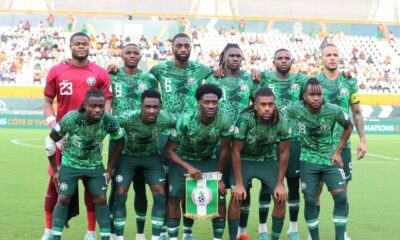
 BIG STORY1 day ago
BIG STORY1 day ago
 BIG STORY2 days ago
BIG STORY2 days ago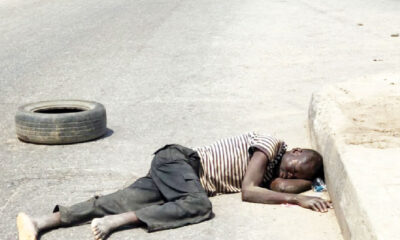
 BIG STORY5 days ago
BIG STORY5 days ago
 BIG STORY4 days ago
BIG STORY4 days ago
 BIG STORY4 days ago
BIG STORY4 days ago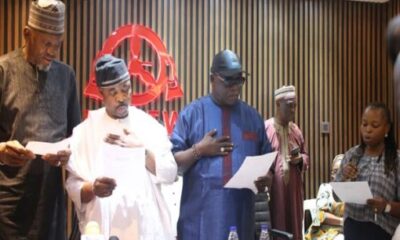
 BIG STORY4 days ago
BIG STORY4 days ago







